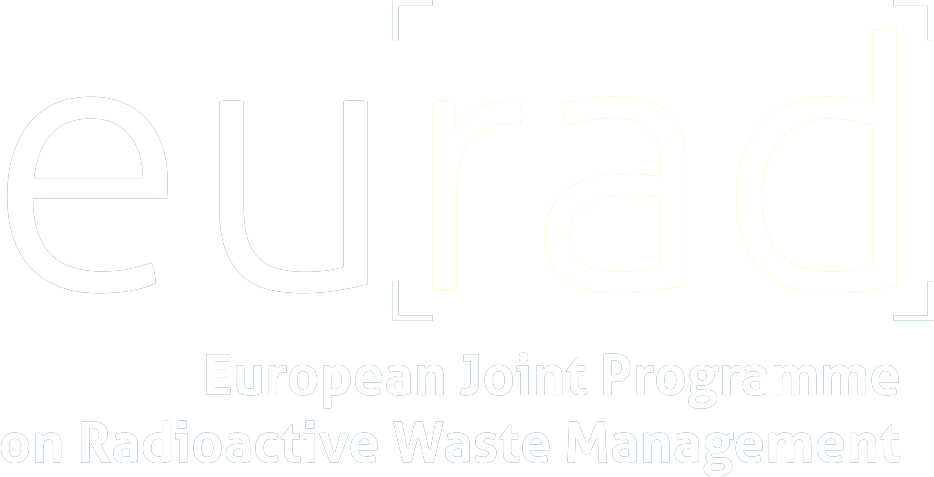
- This item has passed.
Lunch & Learn | Introduction to EC projects HARPERS and HARMONIZE
January 25, 2023 @ 1:00 pm - 2:00 pm
Euratom Council Directives and IAEA Safety Standards provide the basis for the underlying legal and regulatory framework in radioactive waste management and decommissioning. However, the implementation of international safety standards and European Union (EU) directives can vary from one country to another as they are adapted to local considerations and national policies. These national differences can create difficulties in interpreting and comparing waste management practices between Member States (MS) and establishing consistent and coherent waste management policies and implementation strategies at the European scale. Moreover, this lack of commonality may contribute to sub-optimal waste management outcomes in terms of safety, economics, sustainability and innovation as well as public acceptance.
A greater convergence and harmonisation of national standards would allow for increased international cooperation among all relevant actors in nuclear decommissioning and radioactive waste management and could lead to expanded international market opportunities and more rapid adoption of advanced and/or emerging technologies. Alignment and harmonisation based on EU standards would also be advantageous towards enabling more robust comparisons of the efficiency, suitability and limits of available techniques being used in similar conditions.
The 3-year Euratom project, “HARPERS: HARmonised PracticEs, Regulations and Standards in waste management and decommissioning,” aims to establish and clarify the benefits and added value of more aligned and harmonised regulations, practices and standards in decommissioning and radioactive waste management, including possibilities for shared processing, storage and disposal facilities between Member States (MS). The HARPERS project aims to reinforce the activities of the NFRP-2018-6 European Joint Programme on Radioactive Waste Management (EURAD, in particular with the ROUTES WP) [1], NFRP-2019-2020-10 Pre-disposal Treatment of European Radioactive Waste Streams (PREDIS) [2] and NFRP-2018-5 Stakeholder-based Analysis of Research for Decommissioning (SHARE) [3] projects. HARPERS will also connect with the wider European Community through, e.g., SNETP, NEA, IGDTP, IAEA, ENSREG, ERDO, DigiDecom, and will encourage interaction between different national programmes.
Identifying relevant regulatory differences across MS and assessing the rationale for these differences and establishing the potential for their harmonisation relative to cross border services/facilities, moving to a circular economy and implementation of advanced technologies are the primary focuses of the HARPERS project. Obstacles and issues preventing the implementation of a more common regulatory framework will be established. Furthermore, the Strengths, Weaknesses, Opportunities and Threats with respect to harmonisation of the identified regulatory differences and produce reports on harmonising regulatory systems in Europe will be evaluated. A TECOP (Technical, Economic, Commercial, Operational, or Political) analysis will identify a multitude of potential changes, which will be reviewed further in terms of strategic impacts for stakeholders across all MS. The high-level benefits of more aligned and harmonised regulations are related to 1) greater business opportunities, 2) better understanding between diverse groups serving wider markets, 3) improved cost efficiency, 4) waste minimisation and 5) improved final disposability of waste. Realisation of these high-level benefits would contribute to enhancing the overall safety and economics of the nuclear sector. The project, which launched in June 2022, will run for three years and includes 26 organisations from 13 countries. It will strive to have wide stakeholder engagement including regulatory agencies, governments, researchers and industry to meet its objectives.
The current nuclear regulatory framework appeared in the 1960s for licensing early NPP designs and since then it has undergone substantial modifications because of major nuclear accidents and in response to challenges posed by the licensing of Generation III designs. Innovative fission and fusion installations encompass novel technologies that drive the need for developing new licensing procedures. The legal framework and procedures applied in the field of nuclear power are very rigid, which significantly limits new technologies coming to operating NPPs.
There are a number of conventions, directives and other international legal documents signed by the countries. Despite the broad consensus legislations in different countries maintain diverse definitions and interpretations in their application of basic safety principles while being consistent with the IAEA Safety Standards. There is a broad agreement on the need to review the existing regulatory framework, incorporate novel concepts and endow it with sufficient capabilities for assuring safety during design and enabling proper regulatory oversight during operation of innovative facilities.
Taking as a basis the IAEA fundamental safety objective, the HARMONISE project has set five Objectives:
• Objective 1: To analyse preliminary safety assessments of innovative fission and fusion installations
• Objective 2: To peruse the licensing needs for innovative nuclear installations
• Objective 3: To examine risk-informed, performance-based (RIPB) approaches in licensing reviews and regulatory decision-making
• Objective 4: To delimit harmonisation and standardisation on component assessments, methodologies, codes and standards
• Objective 5: To learn from earlier experience in harmonisation efforts
HARMONISE findings will be disseminated and reported to Member States’ nuclear safety regulators with the aim to facilitate their early involvement regarding safety verifications and licensing of future fission and fusion installations. HARMONISE will suggest solutions but decisions are to be later taken by the responsible decision making bodies.
Speakers: Réka Szőke & Egidijus Urbonavicius
Click here to watch the recording of this Lunch & Learn session.
Click here to view all Lunch & Learn sessions.


